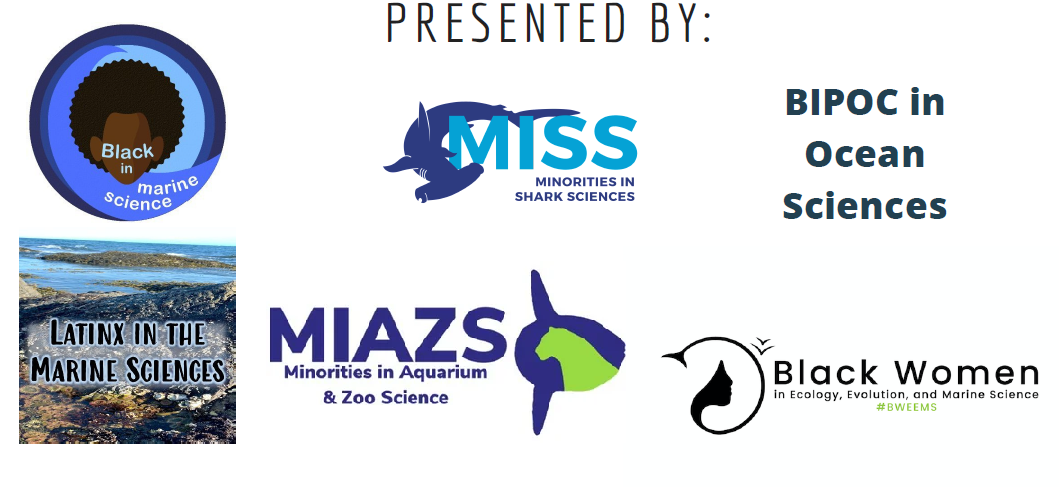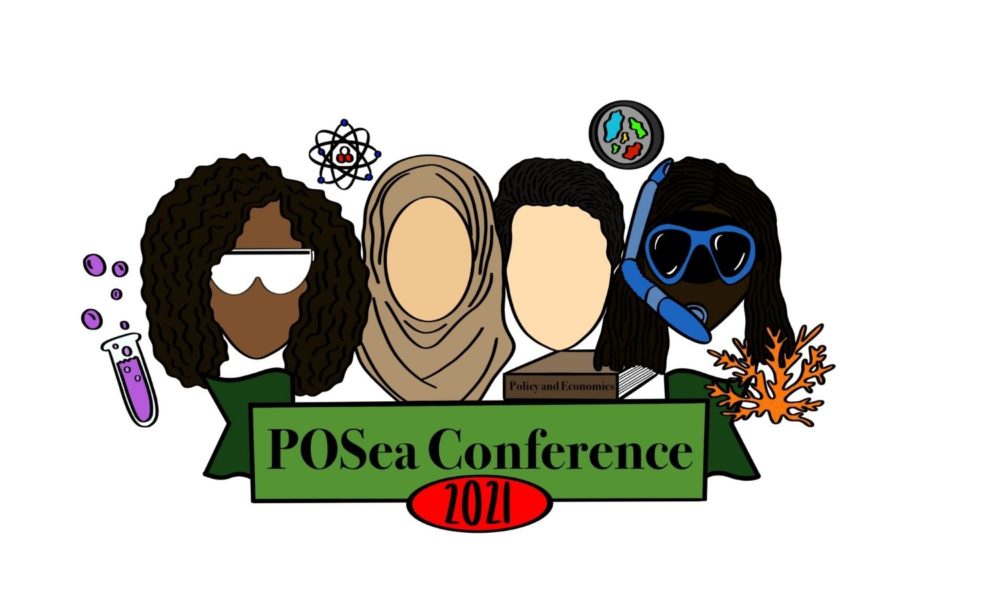Over the past year and a half, we’ve seen #hashtag after #hashtag campaign on social media: #BlackLivesMatter, #StopAsianHate, #BlackInX, #IndigenousRights, and more. These campaigns sparked social media movements that shed light on issues faced by Black, Indigenous, and People of Color (BIPOC) in all facets of life. BIPOC voices were amplified in many areas, including the field of science. The science community has a responsibility to use the momentum of these movements to go beyond hashtags, and enact real change in how we conduct science, and who feels welcome in the field.
Beyond diversity to inclusion
A group of BIPOC people serving marine science organizations, including Minorities in Shark Sciences, Black in Marine Science, Black Women in Ecology, Evolution and Marine Science, Latinx in the Marine Sciences, Minorities in Aquarium and Zoo Science and BIPOC in Ocean Sciences, teamed up to organize a community-building/networking conference called POSea. The purpose of this conference is to amplify the work of BIPOC folks involved in the fields of marine science, conservation, and policy. We want to create a space where BIPOC folks feel welcomed, included, and celebrated. We also seek to provide allies with tools and training needed to support, advocate for, and strengthen minority voices in the field.
The main event: POSea 2021
The conference will be held October 1-3, 2021, and will feature presentations from BIPOC folks working in the fields of marine science, conservation, and policy. This conference is unique in that it is entirely led by historically excluded voices. Programming includes career panels (to help navigate the field), an outreach workshop (providing tools to effectively communicate to communities often ignored), and sessions on the decolonization of marine science.
Preview Day
Historically, and even currently, BIPOC folks are excluded from spaces, resources, and experiences, both intentionally and unintentionally. As a result, BIPOC scientists in the marine science and conservation fields experience difficulty building networks, identifying strong mentors, and navigating these fields. To bridge this gap, POSea hosted a preview day that featured workshops on networking and science policy while allowing BIPOC scientists and conservationists to connect with one another ahead of the main conference. The Preview Day culminated with a forum for attendees to discuss barriers and challenges unique to BIPOC folks in these fields, along with ways to organize and address these issues. Quite a few connections were made during the forum, and there is exciting work emerging from it.
Support for allies
For those who want to learn to be better allies for BIPOC folks in the field and beyond, an “Ally Skills” workshop is being offered. This session is the first of its kind and expands on the traditional conference model. Another way the conference is living into our accessibility goals is the price tag: the events are free for the BIPOC folks we hope to serve. Allies, meanwhile, can purchase $10 tickets to help support the costs of the conference.
Building confidence for the future
We hope that this conference can inspire other events and annual meetings to be more intentional about creating inclusive spaces. BIPOC scientists need to feel welcome in all academic and conference spaces. Scientific associations should ensure they have clear entry points for early career scientists to become more involved in scientific societies, and have more confidence walking into conference settings.
To learn more about this conference or to register for the conference, please visit the conference website.


